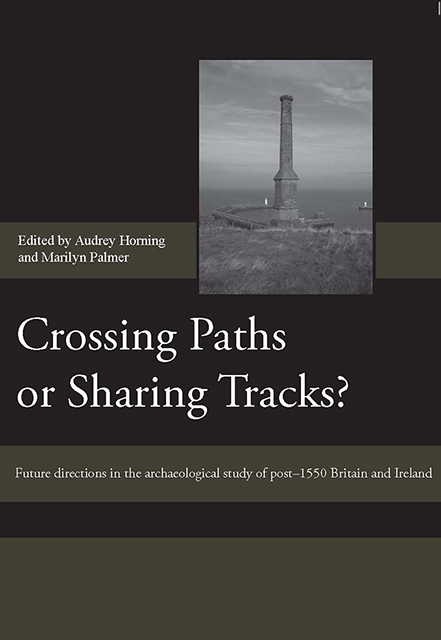 Crossing Paths or Sharing Tracks?
Crossing Paths or Sharing Tracks? Published online by Cambridge University Press: 07 March 2023
A review of current debates on the nature and direction of ‘Industrial Archaeology’ is presented, emphasising the importance of technology and industry within a holistic archaeology of the later second millennium CE, itself situated within a historical archaeology that in Britain extends back to the Roman period. The debate between ‘Industrial’ and ‘Post-Medieval’ archaeology is seen as part of the ‘two cultures’ of sciences and humanities, and the specific connections of industrial archaeology to engineering and thus to physics are emphasised. The definition and chronology of the Industrial Revolution are re-examined, and alternative models of a ‘chemical’ followed by a ‘physical’, or an ‘extractive’ followed by a ‘manufacturing’ Industrial Revolution are proposed, bothseen as being within a ‘long Industrial Revolution’ that extended back to the late-medieval period. These themes are then examined in a case study of the Whitehaven coast. A classic ‘industrial landscape’ of coal mining and associated transport is shown to derive from this ‘long Industrial Revolution’ which in this case took off in the 1630s; however, the landscape and its industrialisation were framed by its medieval antecedents, and represent a landscape of power, symbolism, identity and colonialism as well as one of practical industry. The Whitehaven survey therefore forms part of the holistic archaeology of the later second millennium CE previously advocated; however, the need for ‘unity in diversity’, respecting diff erence and welcoming contributions from the full range of the ‘two cultures’, is stressed.
INTRODUCTION
The future directions of ‘Industrial Archaeology’ in Britain, and its relationships to ‘Post- Medieval Archaeology’, have been the focus of healthy debate over the last few years. Barker & Cranstone 2004, Casella & Symonds 2005 and Gwyn & Palmer 2005 together form a wide-ranging review of archaeological approaches to industry and industrialisation at the start of the third millennium CE; the last of these in particular forms almost a manifesto for a sea-change from technocentric approaches to a ‘social archaeology’ of industry. As discussed in the previous chapter, the debate has been taken forward by Nevell (reacting in part to the present author's paper in Casella & Symonds 2005), by Holden and others in the Letters section of Industrial Archaeology News and most trenchantly by Fitzgerald in Industrial Archaeology Review, forming respectively an industrial archaeology grassroots and a ‘hard engineer’ reaction to the perceived swing to social archaeology represented by Gwyn & Palmer 2005.
To save this book to your Kindle, first ensure [email protected] is added to your Approved Personal Document E-mail List under your Personal Document Settings on the Manage Your Content and Devices page of your Amazon account. Then enter the ‘name’ part of your Kindle email address below. Find out more about saving to your Kindle.
Note you can select to save to either the @free.kindle.com or @kindle.com variations. ‘@free.kindle.com’ emails are free but can only be saved to your device when it is connected to wi-fi. ‘@kindle.com’ emails can be delivered even when you are not connected to wi-fi, but note that service fees apply.
Find out more about the Kindle Personal Document Service.
To save content items to your account, please confirm that you agree to abide by our usage policies. If this is the first time you use this feature, you will be asked to authorise Cambridge Core to connect with your account. Find out more about saving content to Dropbox.
To save content items to your account, please confirm that you agree to abide by our usage policies. If this is the first time you use this feature, you will be asked to authorise Cambridge Core to connect with your account. Find out more about saving content to Google Drive.